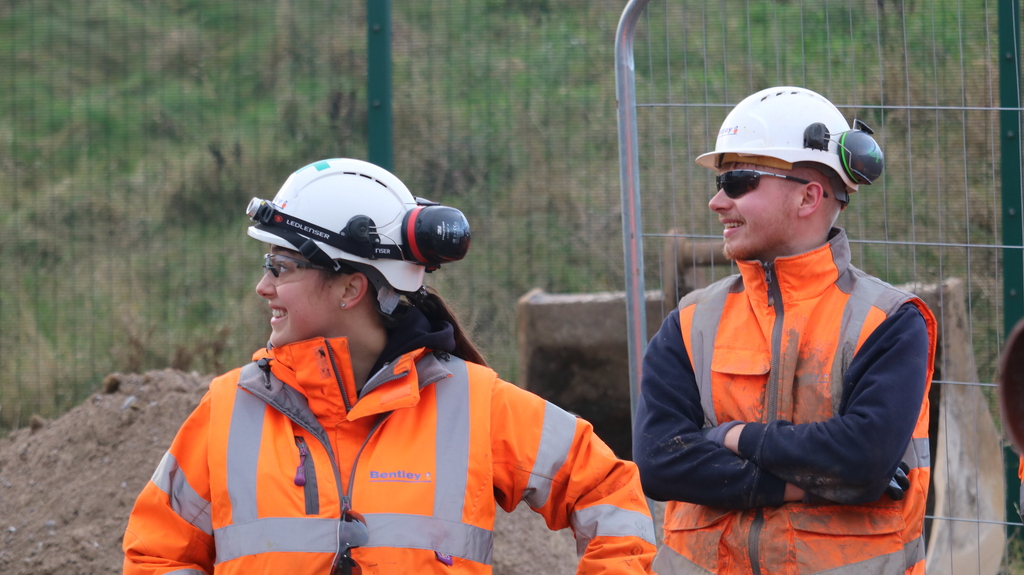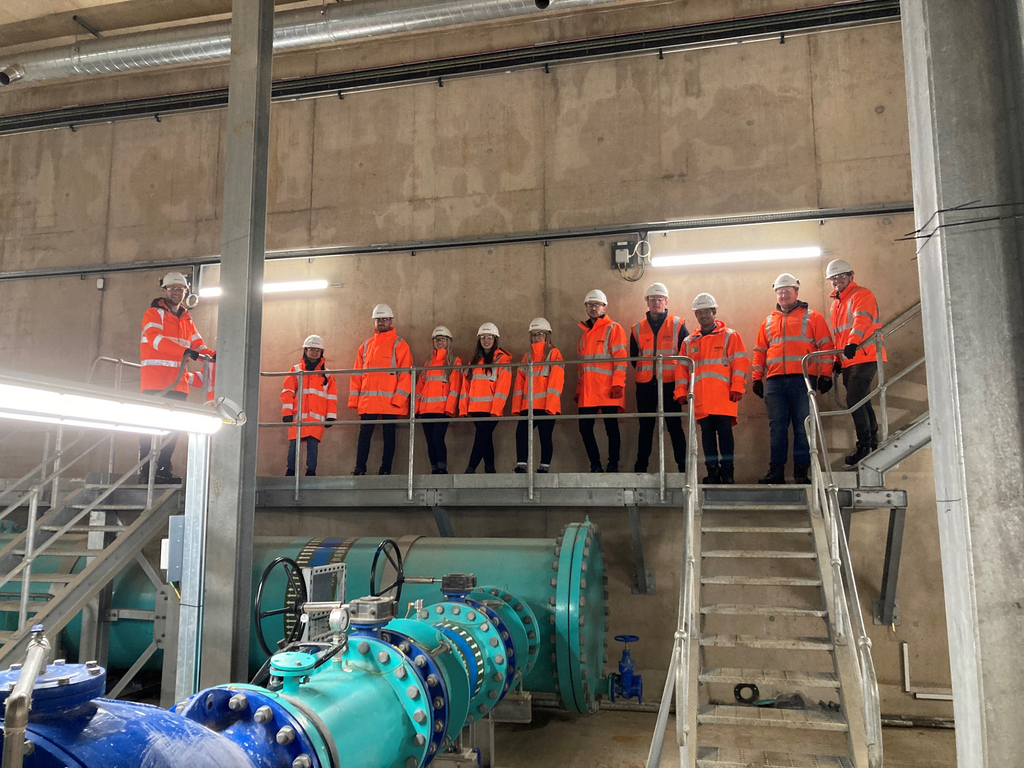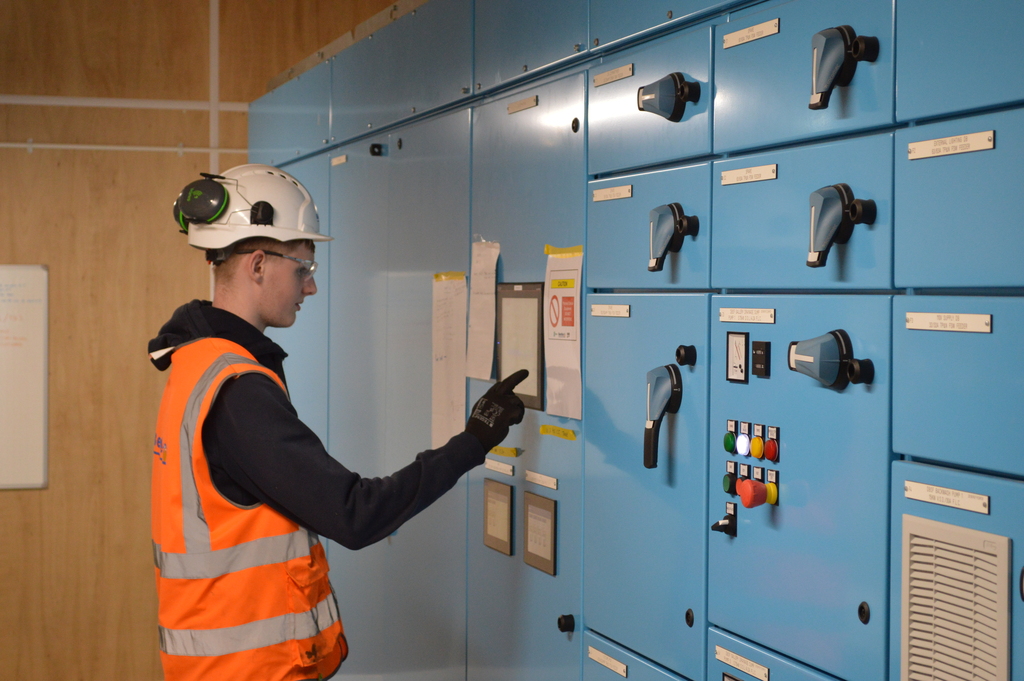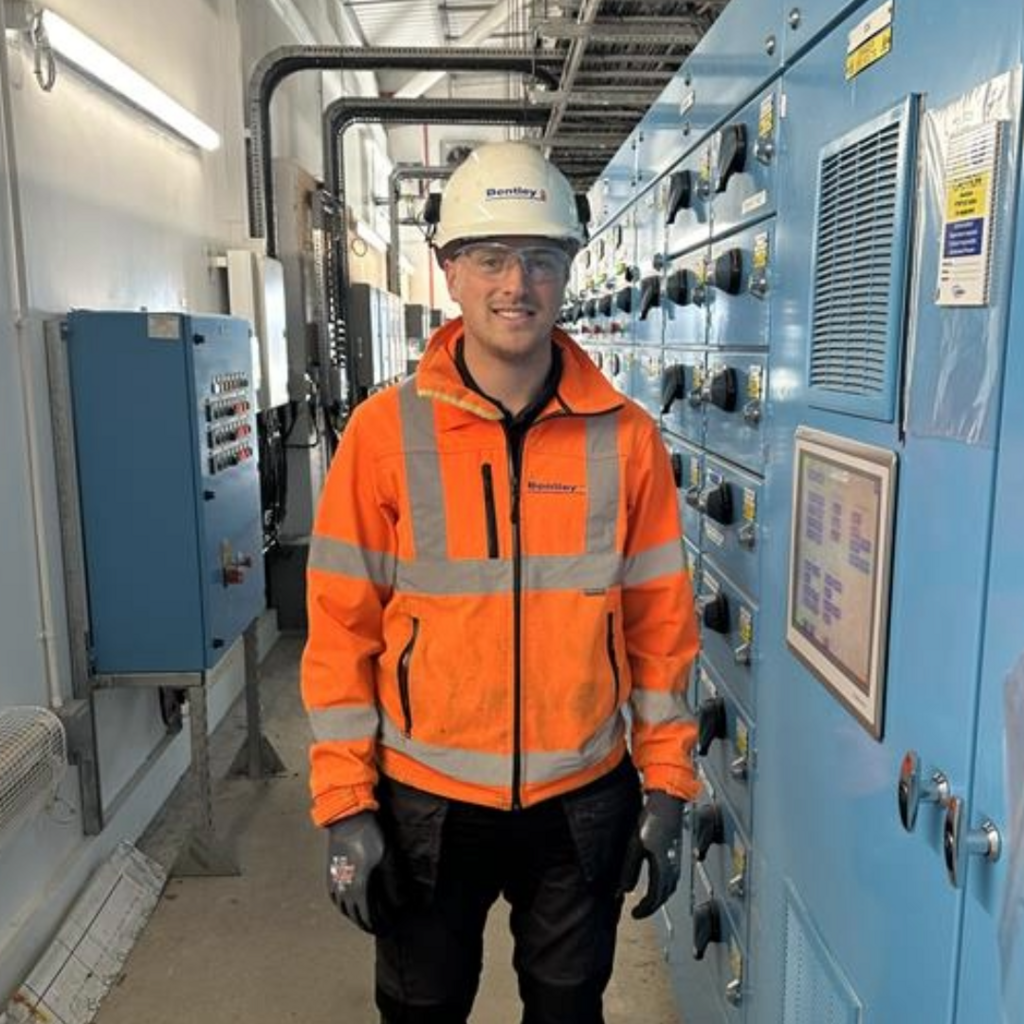Our graduate schemes offer a blend of real-life experience and structured development. From day one, you’ll be a permanent member of the team, working on live projects that help shape the infrastructure around us. With dedicated mentors, a bespoke development programme and a clear pathway to professional accreditation, you’ll gain the technical skills, confidence and insight needed to thrive within the civil engineering sector. Graduate schemes at JN Bentley are designed to help you build a strong foundation for a successful and rewarding career.
Engineer impact. As a graduate site engineer, you’ll play a key role in supporting the delivery of construction projects from the ground up.
You'll put the theory learnt at university into practice, with a hands-on introduction to site-based engineering. You’ll assist with setting out, surveying, and monitoring progress to ensure work is completed safely, accurately and to specification.
Working closely with experienced engineers and project teams, you’ll gain exposure to real world challenges and develop core skills in planning, problem-solving and communication. It’s an ideal starting point for graduates looking to build a career in civil engineering and contribute to impactful infrastructure projects.

Master the mechanics. As a graduate mechanical engineer you'll put your problem solving and creative thinking skills to the test - supporting the design, build, test and maintenance of critical mechanical systems.
With most of our work in the water sector, you'll play a vital role in designing and optimising fluid process flows across clean and wastewater treatment sites, ensuring the right mechanical equipment is specified and integrated effectively.
You'll build a strong foundation in core engineering principles, with exposure to a wide range of mechanical systems and even opportunities to engage with electrical components. You'll work alongside multidisciplinary teams to tackle technical challenges, enhance operational efficiency, and uphold rigorous performance and safety standards.

Spark innovation. As a graduate electrical engineer, you'll be at the heart of designing, installing, and maintaining the electrical systems that power water treatment and distribution processes – ensuring seamless control of the mechanical components involved.
This role gives you hands-on experience in power distribution, control systems, and energy efficiency solutions, all while contributing to the safe and reliable delivery of essential infrastructure. Working alongside experienced engineers, you'll learn to troubleshoot technical issues, interpret complex drawings, and ensure everything meets industry standards. Sharpen your technical skills and build a rewarding career in electrical engineering.

Apprenticeships have long been a part of our history, and we value the ideas and energy that apprentices bring to our business. Our apprenticeships encourage both personal and professional development, providing you will the support and experiences you need to build a successful career in your chosen field.
An apprenticeship is a paid job that combines practical experience with training to achieve a nationally recognised qualification. It’s a fantastic opportunity to take important steps into a career, giving you the opportunity to gain practical skills and academic knowledge all whilst earning a great salary.
Each role will have its own requirements, so it’s always best to check the job advert when submitting your application, but the basic requirements are:
• You must be 16 years old or older.
• 5 GCSEs graded C/4 or above (including Maths and English).
• For our Level 4 Apprenticeships you will also need to have 2 A-levels or an equivalent Level 3 diploma.
• For some of our apprenticeships you must hold a full UK driving licence or be in the process of learning to drive.
Yes, we pay all our apprentices well above the apprentice national minimum wage. It’s important to us that our apprentices feel well rewarded for the roles they do.
This depends on exactly which apprenticeship qualification you do, but they are typically around 2-3 years.
Unlike many other employers, we offer all our apprentices a permanent role from day one. Accepting an apprenticeship with us means beginning a long term. We hope that accepting an apprenticeship with us marks the start of a long and successful career.
As a parent/guardian, you want your child to get the best possible start in their career and with so many options available to young people after they leave school, it can be daunting when offering advice. So here are some frequently asked questions to help you support your child in making the right decision for them.

What made you decide to take an apprenticeship role?
After researching what an apprenticeship entails, I believed it was the best route for me to ensure I would develop the key skills required to be a successful Quantity Surveyor. You have the opportunity to gain practical and relevant work experience alongside part time education.
What’s the best thing about being an apprentice quantity surveyor?
I enjoy that every day is different, whether that is where I am working or what I am doing throughout the day. I’m constantly learning and progressing towards my goal of being a quantity surveyor. In my opinion the best part of being an apprentice quantity surveyor is getting a degree without having to be in full time education which I believe has benefitted me massively.
How have you been supported?
JN Bentley have provided a wide range of support within the graduate and apprentice development programme, there’s been a wide range of meetings to enhance my knowledge of the water sector and different suppliers’ roles within the projects. I’ve also been paired with a mentor since I started who’s helped me settle in and guided me through the different software and processes. This has helped massively, if I ever have a question, I always have someone to go to.
What are your top tips for someone at the beginning of their apprenticeship journey?
Don’t be afraid ask questions as the more you ask the more you learn. No one expects you to know everything when you are new to the role and the business. I’d also suggest taking notes, when you first start there’s a lot to take in take in which is easy to forget, writing notes has always helped me as there’s always something to look back on.

What made you decide to take an apprenticeship role?
I didn’t want to go to university and wanted the experience of work while still getting qualifications to progress.
What’s the best thing about being an apprentice site engineer?
Definitely the crack with the team - everyone’s laid back but still pushes on to get the work done which helps avoid potential stress, also being able to work with management as well as the team on site.
How have you been supported?
Support comes from almost everyone around you, they want you to succeed as it makes their jobs easier. Everyone is willing to help and pass on their knowledge, which means you’re always learning new things.
What are your top tips for someone at the beginning of their apprenticeship journey?
Just listen and take in what you’re being told so you get a better understanding. Make sure you’re friendly to everyone, the more people that like you, the easier the job is when you get stuck. Another big tip is…use your time wisely, especially when you’re at college. If you need to catch up on paperwork college is the best place as things are busy on site. It’s also a good time to focus and plan. Staying on top of your work, organising and planning 2 steps ahead always helps.

What made you decide to take an apprenticeship role?
Leaving school, I went to college, however halfway through my first year I realised it wasn’t for me and something more practical and hands on would be better especially if I could earn and learn.
What’s the best thing about being an apprentice MEP engineer?
I’d say the best thing is, whoever you work with you’ll be learning on the job and using the tools. This ultimately builds your confidence, and you will become a better engineer.
One of the other best things about being an MEP apprentice is the engineers you work with. They all have different ways of teaching you different techniques to complete the job. They’re always willing to help and demonstrate practical skills so that you can build your own knowledge.
How have you been supported?
The opportunity JN Bentley have offered during my apprenticeship shows how much effort and thought they put into early careers.
There are loads of great things about being an MEP apprentice, there’s so much support whilst you learn, whether on site or your college work. When I don’t understand my college work or something on site I always ask for help, you can ask any of the other MEP engineers and they’ll all be happy to help.
What are your top tips for someone at the beginning of their apprenticeship journey?
You’re not expected to know everything straight away and the other engineers don’t expect you to learn overnight. If you don’t understand something, that’s normal and you can ask for an explanation, and someone will explain it to you.
When you start doing hands on tasks, take your time, don’t rush it just go through it step by step in your head. If you’re still unsure, just ask and the engineer you’re working with will happily show you again.
Press play and click pause if you need more time to read each page.